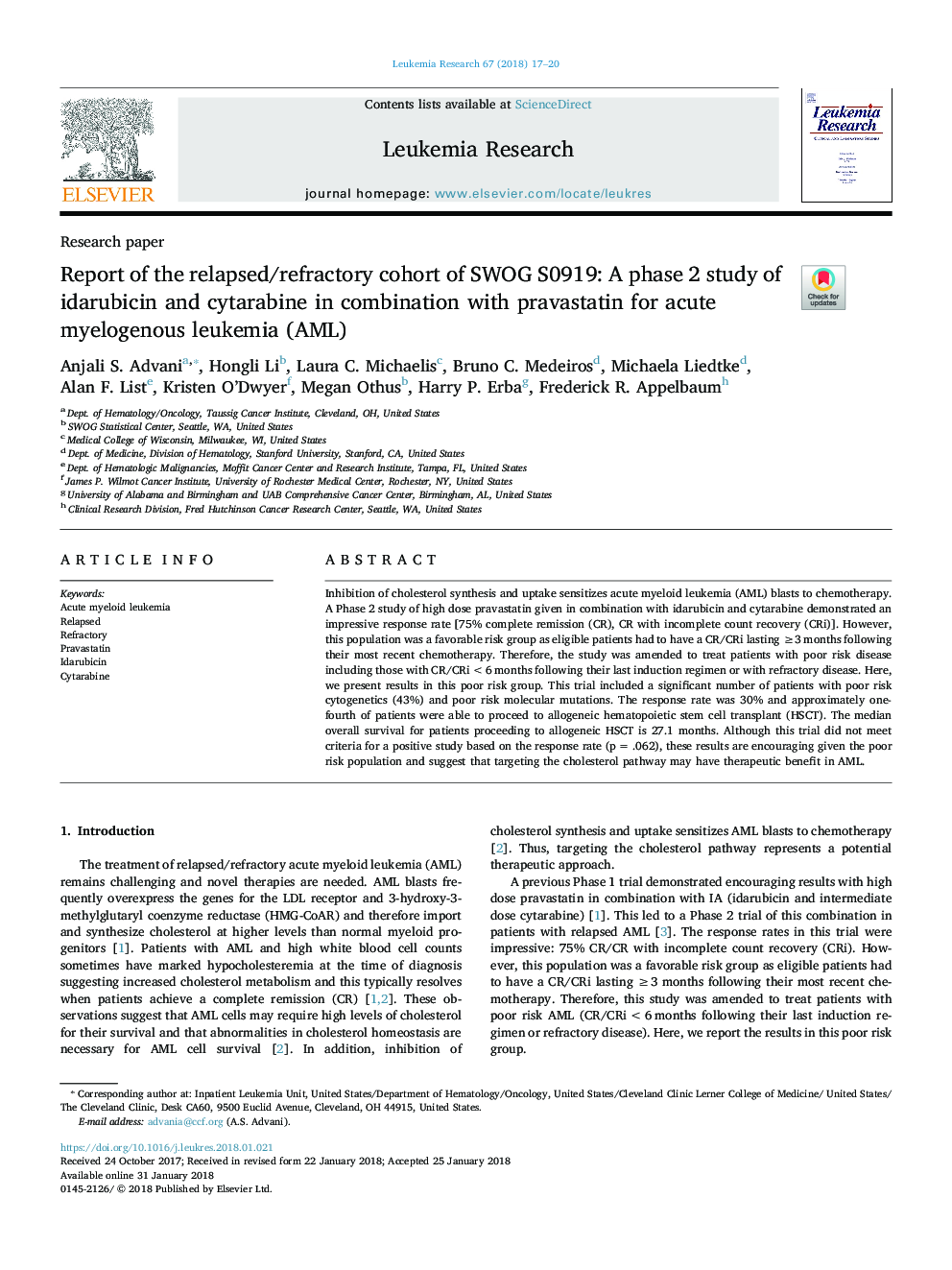| Article ID | Journal | Published Year | Pages | File Type |
|---|---|---|---|---|
| 8453354 | Leukemia Research | 2018 | 4 Pages |
Abstract
Inhibition of cholesterol synthesis and uptake sensitizes acute myeloid leukemia (AML) blasts to chemotherapy. A Phase 2 study of high dose pravastatin given in combination with idarubicin and cytarabine demonstrated an impressive response rate [75% complete remission (CR), CR with incomplete count recovery (CRi)]. However, this population was a favorable risk group as eligible patients had to have a CR/CRi lasting â¥3 months following their most recent chemotherapy. Therefore, the study was amended to treat patients with poor risk disease including those with CR/CRi <6â¯months following their last induction regimen or with refractory disease. Here, we present results in this poor risk group. This trial included a significant number of patients with poor risk cytogenetics (43%) and poor risk molecular mutations. The response rate was 30% and approximately one-fourth of patients were able to proceed to allogeneic hematopoietic stem cell transplant (HSCT). The median overall survival for patients proceeding to allogeneic HSCT is 27.1 months. Although this trial did not meet criteria for a positive study based on the response rate (pâ¯=â¯.062), these results are encouraging given the poor risk population and suggest that targeting the cholesterol pathway may have therapeutic benefit in AML.
Related Topics
Life Sciences
Biochemistry, Genetics and Molecular Biology
Cancer Research
Authors
Anjali S. Advani, Hongli Li, Laura C. Michaelis, Bruno C. Medeiros, Michaela Liedtke, Alan F. List, Kristen O'Dwyer, Megan Othus, Harry P. Erba, Frederick R. Appelbaum,
